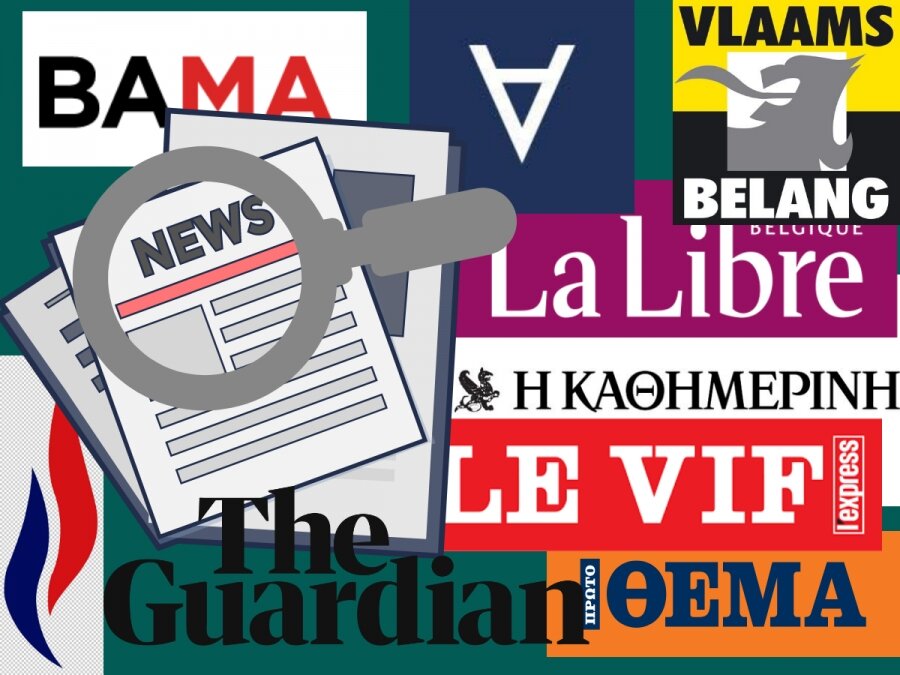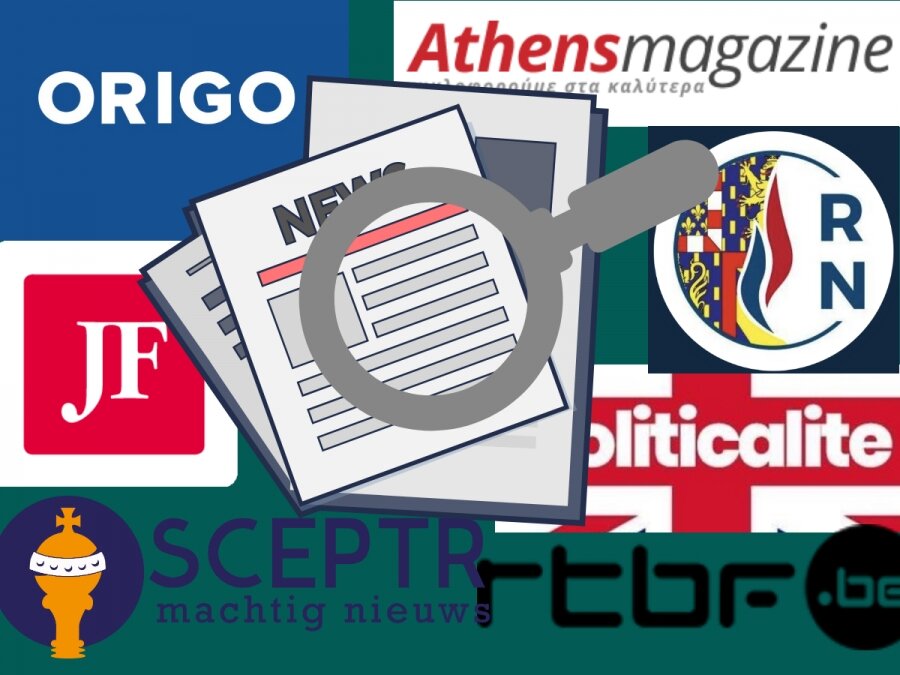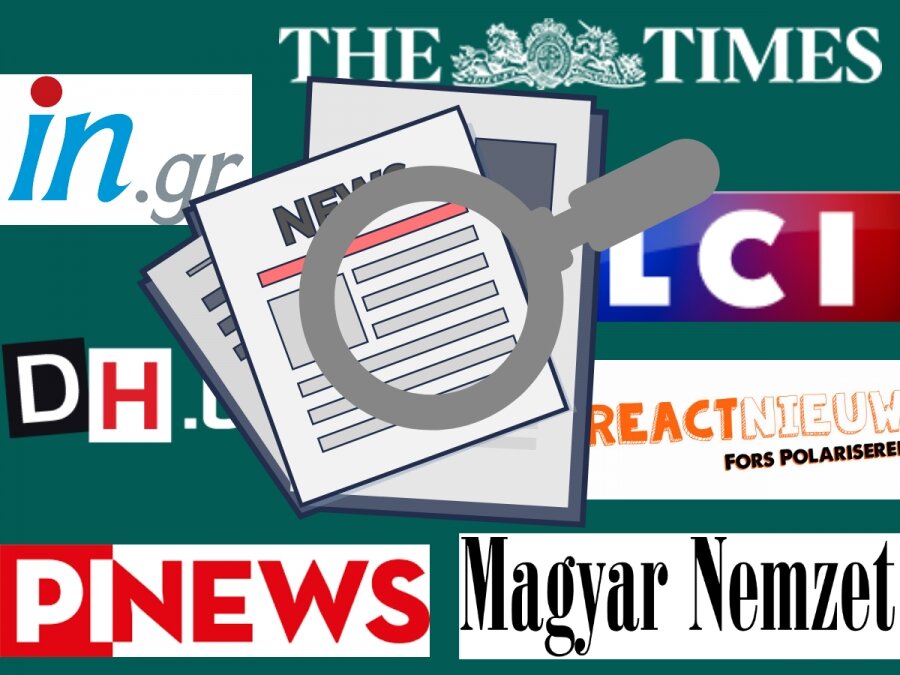
Our monthly round-up is an overview of the most significant results of our monitoring of traditional and new media in Belgium, France, Germany, Greece, Hungary, and the United Kingdom.
Also visit our Dig Deeper series, where we go into detail to expose and explain increasing trends of anti-religious hate in the media.

MAY - MEDIA MONITORING HIGHLIGHTS
From a trending antisemitic hashtag on Twitter in France, to a public broadcaster publishing a video inflating Islamist terrorist messages in Hungary, these May highlights are an overview of the most significant results of our monitoring of traditional and new media in Belgium, France, Germany, Greece, Hungary, and the United Kingdom.

April - MEDIA MONITORING HIGHLIGHTS
From a Minister insinuating that people with migrant backgrounds are not compatible with Belgian society, to the usage of an unrelated image of young girls wearing headscarves to accompany an article about sex workers in Pakistan, these April highlights are an overview of the most significant results of our monitoring of traditional and new media in Belgium, France, Germany, Greece, Hungary, and the United Kingdom.

March - MEDIA MONITORING HIGHLIGHTS
From Belgian politician repeatedly spreading anti-Muslim sentiments online to a National Rally local candidate sharing a video blaming Jews for the coronavirus pandemic, these March highlights are an overview of the most significant results of our monitoring of traditional and new media in Belgium, France, Germany, Greece, Hungary, and the United Kingdom.

February - MEDIA MONITORING HIGHLIGHTS
From a Hungarian "security expert" justifying the Hanau shooting as "self-defence" on national TV to the BBC Question Time programme promoting anti-migrant ideas, these February highlights are an overview of the most significant results of our monitoring of traditional and new media in Belgium, France, Germany, Greece, Hungary, and the United Kingdom.

January - MEDIA MONITORING HIGHLIGHTS
From an article on the Flemish De Standaard normalising anti-Muslim rhetoric to the French commentator Zemmour saying that he does not care if children die crossing the Mediterranean sea, these January highlights are an overview of the most significant results of our monitoring of traditional and new media in Belgium, France, Germany, Greece, Hungary, and the United Kingdom.

DECEMBER - MEDIA MONITORING HIGHLIGHTS
From a German website using demographic conspiracies to fuel fears against Muslims to a Hungarian public broadcaster fuels fears about security in Germany to promote anti-immigration agenda, these December highlights are an overview of the most significant results of our monitoring of traditional and new media in Belgium, France, Germany, Greece, Hungary, and the United Kingdom.

NOVEMBER - MEDIA MONITORING HIGHLIGHTS
From a French magazine vilifying a Jewish historian for his physical appearance to Belgian festivities being used to broadcast anti-Muslim sentiments, these November highlights are an overview of the most significant results of our monitoring of traditional and new media in Belgium, France, Germany, Greece, Hungary, and the United Kingdom.

OCTOBER - MEDIA MONITORING HIGHLIGHTS
From a controversy on secularism in France over the Muslim headscarf to a popular lifestyle magazine spreading well-established antisemitic conspiracy theories, these October highlights are an overview of the most significant results of our monitoring of traditional and new media in Belgium, France, Germany, Greece, Hungary, and the United Kingdom.

SEPTEMBER - MEDIA MONITORING HIGHLIGHTS
From a national news channel broadcasting an anti-Muslim speech to a media outlet smearing an opposition parties’ candidates for their stance on migration, these September highlights are an overview of the most significant results of our monitoring of traditional and new media in Belgium, France, Germany, Greece, Hungary, and the United Kingdom.

AUGUST - MEDIA MONITORING HIGHLIGHTS
From anti-Muslim fear-mongering on the media coverage of Eid al-Adha to refugees being called "irritating dust", these August highlights are an overview of the most significant results of our monitoring of traditional and new media in Belgium, France, Germany, Greece, Hungary, and the United Kingdom.

